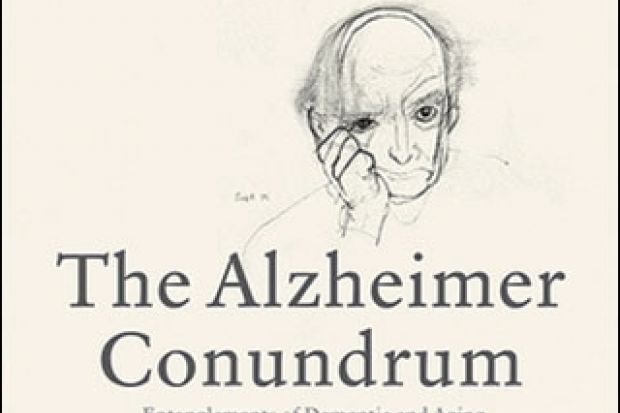Despite billions being spent on research into Alzheimer’s disease over the past 50 years, we are no closer to a cure. The ethnographic account Margaret Lock supplies in The Alzheimer Conundrum furnishes a comprehensive description of the events leading up to the recasting of the phenomenon of Alzheimer’s as a condition to be prevented, and of the debates that have arisen in connection with the implementation of this process. The author challenges traditional assumptions and statistics about Alzheimer’s and takes us on a journey from the disease’s original clinical case through the vacillations in the science world and the media regarding possible causes, diagnostics, biomarkers, genetics and cures. She questions prevalence estimates for the impending “Alzheimer’s epidemic” that has been forecast with great assurance by some interest groups, despite our inability to accurately diagnose the disease and therefore determine its extant national or international prevalence.
Although diagnosis of Alzheimer’s is higher in specialist clinics accessible only to a minority, the accurate diagnosis of the disease in the general medical population is out by as much as 50 per cent. Lock explores the complex ethical and practical issues involved, in which practitioners must present patients and families with a difficult diagnosis: a disease with no possibility of cure and yet one requiring long-term follow-up and detailed investigations carried out predominantly for research purposes. Lock then details the more recent possibilities for prevention using evidence for education, lifestyle behaviours and social engagement and networks, and makes the case for a pragmatic balance between the aggressive (and often pharmaceutical-driven) search for biomarkers and treatments, and the known preventive measures.
Given the demographic challenge of extended lifespan coupled with the predicted Alzheimer’s tsunami, Lock explores in detail the evidence for the relationship between mind and body, and the question of whether Alzheimer’s disease is simply an inevitable part of ageing that would affect us all were we to live long enough or a discrete pathological disorder. She takes us through the fundamentals of the disease, including reserve capacity, neuropathology and how we are reconfiguring our understanding of health to extend backwards through the lifespan; in other words, the influence of life course factors on end-stage pathology.
Throughout, she explores the wider issues of why some people acquire the disease and others with apparently the same risk-factor profile do not. What are the contributions made by the mind, individuals, families and environments that determine resilience or susceptibility to disease and, specifically, to Alzheimer’s? How do these and other biological factors influence brain plasticity?
The Alzheimer Conundrum is a gem for young scientists and medical students, and it will challenge them to step back from traditional models, standardised diagnostic procedures and disease specificity to adopt a broader philosophical approach: when is a disease not a disease? When is pathology normal and when does a natural entity become pathological? Lock draws her evidence from detailed scrutiny of the literature, coupled with interviews of researchers of renown in this field and from many disciplines. Although the book is well written, it will be best suited to scholars familiar with biological taxonomy: terms such as “cleavage”, “syndrome”, “precursor protein” and “dendrite” are used assuming that the reader requires no explanation.
Lock’s rigorous unpacking of research studies and refusal to accept statements and conclusions from research papers at face value result in a thorough and honest appraisal of the current state of the field. It will be a great help in understanding the confusion and conflicting evidence surrounding this highly important topic.
The Alzheimer Conundrum: Entanglements of Dementia and Aging
By Margaret Lock
Princeton University Press, 328pp, £19.95
ISBN 9780691149783 and 9781400848461 (e-book)
Published 20 November 2013
Register to continue
Why register?
- Registration is free and only takes a moment
- Once registered, you can read 3 articles a month
- Sign up for our newsletter
Subscribe
Or subscribe for unlimited access to:
- Unlimited access to news, views, insights & reviews
- Digital editions
- Digital access to THE’s university and college rankings analysis
Already registered or a current subscriber? Login





